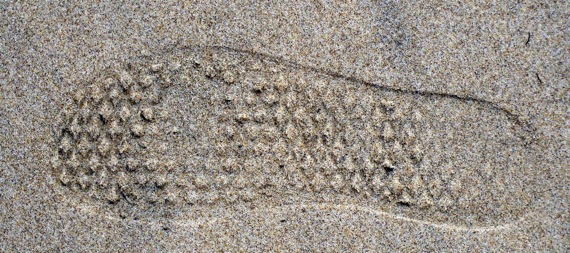 The current generation of kids growing up is the first generation to be growing up never knowing life without the internet, social networking, and smartphones. In previous generations, all parents knew that it was absolutely necessary to educate their kids about the dangers of drugs and strangers. But now, with a new set of dangers, there are new, foreign dangers that are not only new for the generation of children faced with them, but also for the parents who are expected to teach their children. I love the technological advancements that we are able to have, but I also think it's important for families to learn about how their use of technology creates a digital footprint. Whatever you do, say, or explore online will leave a footprint behind; know that, teach that, and protect yourself from the possible dangers of that. Here are a couple of thoughts that I feel like will be helpful as you talk to your family about their digital footprint.
The current generation of kids growing up is the first generation to be growing up never knowing life without the internet, social networking, and smartphones. In previous generations, all parents knew that it was absolutely necessary to educate their kids about the dangers of drugs and strangers. But now, with a new set of dangers, there are new, foreign dangers that are not only new for the generation of children faced with them, but also for the parents who are expected to teach their children. I love the technological advancements that we are able to have, but I also think it's important for families to learn about how their use of technology creates a digital footprint. Whatever you do, say, or explore online will leave a footprint behind; know that, teach that, and protect yourself from the possible dangers of that. Here are a couple of thoughts that I feel like will be helpful as you talk to your family about their digital footprint.
What happens online stays online.
One of the most important realities when it comes to teaching your kids about their digital footprint is that everything they do on the internet will permanently exist on the internet. They might argue that they can delete photos, statuses, blog posts, etc and while this is true, it may remove them from being visible but they are not removed from existance.
The reality for kids to learn and for parents to teach them is that everything they put on the internet is permanent. Everything. The pictures you post on facebook are stored in facebook forever (you may remove them from being visible but facebook still owns them). Google knows everything you ever searched. Have you ever noticed how much the ads on facebook and google match things that you actually might be concerned about? That's because every little thing you do is being recorded and stored and used.
I love technology and am all about young teens using these technologies, but I also think they need to be taught to wrestle with the question, "Do I want this to stay with me forever?" I love the technology but want parents deeply involved with what their kids are doing and saying online. Parents need to be helping students learn to discern what they should or shouldn't say. Students need to be guided in all these things; most parents won't let there kids simply go over a friends house they don't know, but many parents have no idea who their kids friends are online.
Talk to your kids about:
- The pictures they're posting/texting/sharing
- Are they sharing their locations?
- What are they saying?
- What are other people saying?
What happens online doesn't just stay online.
At the same time it is true that what you put on the internet is permanent, it doesn't only stay on the internet. When you post something on facebook, it has impact on your life in school, your friendships, and maybe even your potential employer. Every single word you write on the internet with your name attached to it is attached to you personally. This reality oftens gets discovered amongst young kids when one of them feels the difficulty of a bully online. It happens online, sure, but the pain and the consequences hurt much more than their digital persona. This continues as kids become adults and start to look for an employer or a college; both regularly go on facebook to see their potential candidates. All of the sudden your posts and pictures have significant impact on the rest of your life. When sexting happens we see this reality in a huge way; some kids make poor choices in what they share digitally with each other and the consequences are much bigger than embarssment, kids are scarred who made the choice to be in the picture and the kids who are sending the pictures are even being charged with child pornography. That's not a charge that only affects their ability to have a facebook account; they'll probably never get a job if that happens.
Talk to your kids about:
- How do you think what you say on the internet affects your school life?
- Have you experienced anybody saying/sending anything to anybody else that had negative consequences?
- If people just knew you from what they could find online, what would they think about you?
Photo Credit: izzyb412
